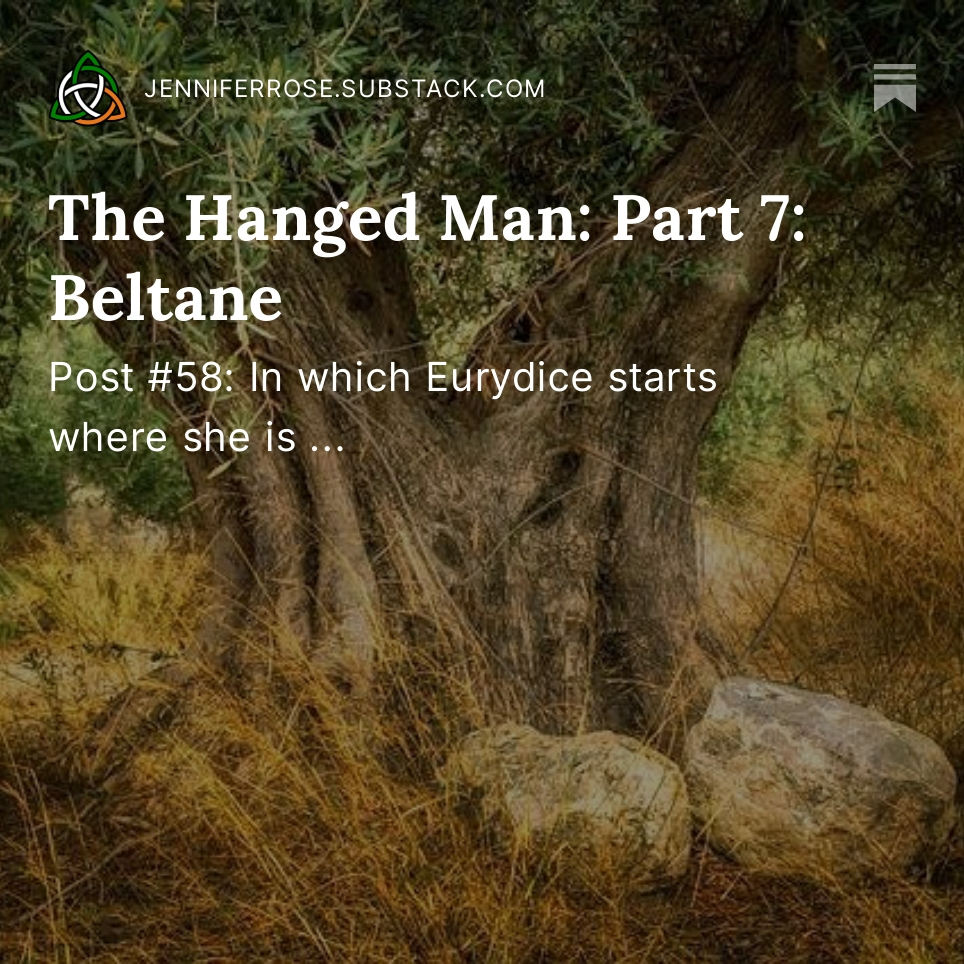by Jenny Rose | Aug 31, 2024 | A Flourishing Woman, The Journey
In July of 2016 I wrote my first post on this blog, a letter of resignation from people pleasing. Since then, that post has had more than 20,000 views. A comparatively modest number for the internet, but for me personally an astounding one.
Now, in August of 2024, I’m writing another letter, this one a heartfelt thank you to all of you who read my words, commented, and sent my work on to others over the years. I hope my posts will continue to find those who are treading some of the same paths I have.
When I began this blog, the only goal I could identify was to have the courage to do it. I wasn’t sure who I was or what I thought and I didn’t know how to use my true voice. I felt as though I was fighting for my life. I didn’t expect anyone would read it, but I knew I needed to write it. I wasn’t sure why, exactly, but I knew I had to, and I knew intuitively whatever I wrote here would be real and true and honest. I wanted to find that woman, know her, and reclaim her if I could.

Photo by Ryan Moreno on Unsplash
I did not imagine how powerful the practice of blogging would be for me. I did not dream of the healing, the growth and learning, and the self-acceptance I’ve achieved.
I almost never take vacations. I don’t say that with pride or a sense of superiority. In fact, I’m determined to give myself more regular breaks in the future. I’m off work when sick or injured, of course. We were furloughed during the pandemic, but that hardly felt like a vacation. However, for two weeks the pool facility where I work is closed down for maintenance, and I was amazed at how I looked forward to these two weeks, how I longed for them.
I’m not traveling, or doing anything wildly different or special, but the gift of time is exquisite. Time without clocks or my phone. Time in the garden. Hours in which to read and write. Time to sit in the sun, take a catnap. Time like a ripple of playful music, empty, inviting, unpressured. Time to think and feel and drift. Time for inspiration and intuition.
When I feel like I don’t have enough time during normal working life, I’m harsh with myself. I tell myself we all find time to do the things that matter and if I’m not, either I don’t really want to do what I think I want to do or I’m doing life WRONG. Again. I’m lazy, I’m disorganized, I’m ineffective, I’m wasting time, and I’m making excuses. So I work harder, get up a little earlier. I try to be more organized. I simplify my routines. I keep moving, producing, and doing.
In these days of my vacation, however, I discover when I have time, real, unlimited, unbounded time, I fall joyfully into exactly what I most want to do (working on my third book), like plunging into a lazy summer river.
I’ve been asking myself what needs to happen for me to follow my heart and soul into writing this book and all the books after it. Now, when the voice of my intuition says ‘more time,’ I’m listening instead of attacking myself. Maybe my story does need more of me than I’ve been giving it, more presence, more space, more energy, more time.
I’ve been thinking about the shape of my life, what I do in a day, a week, a month. I’ve wondered what I can take out. Not work. Not gardening. Not exercise. Not reading. Not Substack, where I serial post my fiction and occasional essays. It occurred to me to wonder if I’m ready to let go of Harvesting Stones.
This morning, while driving to get groceries in early morning rain, I found myself mentally drafting this post, and I thought, I guess I am ready. And I felt sad. Thunder rolled, as it had been all morning. The wipers went back and forth. I sat looking at a stoplight, waiting for the green arrow, and for a moment I let Harvesting Stones drift away, shining, heavy with words, a creased and folded roadmap of my psyche, so full of effort and vulnerability. I imagined space and time and energy in the place where it had been and I thought about letting die what must.
Sadness was there, yes, but also peace. A sense of rightness. I’ve found an interactive community on Substack where comments turn into discussions and inspiration. I like the creative energy there, the collaborative tools and people. Harvesting Stones has been a solo endeavor, hugely growthful when I began because it forced me out of hiding, but now the challenge is gone and I’m ready for more interaction, more connection, and the endless fascination of writing compelling fiction.
It’s been some time since I’ve seen the path ahead so clearly in my writing life, and I want to find out where it leads.
I’m going to leave Harvesting Stones up, just as it is, in the hopes people will continue to stumble across it and find it useful. I will still receive and answer comments and maintain the site. You can always find me on Substack. My work there is free to read, just as it’s been here.
This blog has been one of the most significant things I’ve ever done. Letting go is hard. I cannot close this chapter in my life without thanking my emotional intelligence coach. Without him, I would not be in Maine. I would not have started blogging. I would not have written two books and be working on a third. I’m not sure I’d even be alive. I certainly would not have reclaimed my health and joy. I did the work, but he showed me the way.
Thank you all for being part of my journey. Come see me on Substack!
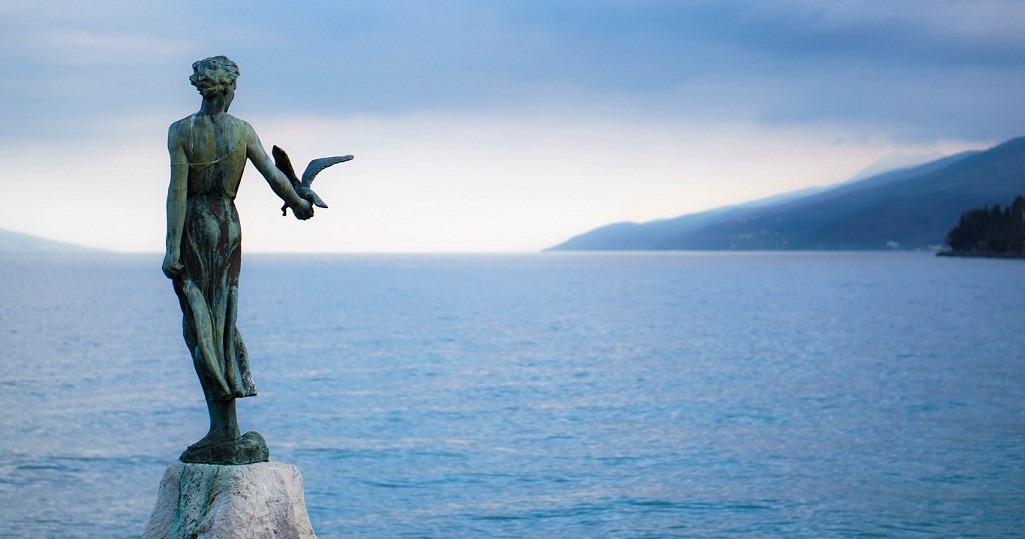
By Danijel Durkovic on Unsplash
by Jenny Rose | Jul 20, 2024 | A Flourishing Woman, Self-Love
The more battered I feel by the news cycle and the daily externals of my world, the more important it is to spend time in solitude, focusing inward and practicing love and trust with myself.

Photo by Cristian Newman on Unsplash
(It sounds delightful, doesn’t it? So wise and functionally adult! It doesn’t read like tears; trauma; dumping feelings onto the page; wrestling with fear, despair, perfectionism, heat, humidity, housework, and (most recently) a fiery case of athlete’s foot while the garden turns into a steaming jungle outside my locked and blinded windows and the air conditioner gently roars.)
I recently reread The Mermaid Chair by Sue Monk Kidd. I haven’t read it in a long time, but it was next on the shelf, so I cracked it open. I came across a line I don’t remember and evidently didn’t remark on previously: “…I’d never done anything that took my own breath away …”
The speaker is a middle-aged woman and that line grabbed my attention.
We are consumed by externals. The male gaze. The public eye. What others think of our looks, our words, our actions. Is our virtue signaling adequate and prominent? Are we pleasing the right people? Are we flourishing our flags with sufficient outrage and hostility? Are our masks and identities firmly in place?
The more we focus on externals, the less we pay attention to our relationship with ourselves and the more broken we become.
Why don’t we think about taking our own breath away?
This might not seem important. After all, what’s more exquisite than the feeling of being in love? The sight and smell, sound, taste, and texture of the loved one. Every expression. Every word. Every insignificant detail, past and present, is breathtaking. For a time. How could we ever hope to compete with that feeling, that excitement?
But what happens if we never take our own breath away?

Photo by Jeremy Bishop on Unsplash
Some of my favorite stories are oral tales about the selchies; creatures who are men and women on the land and seals in the sea. Most of the time the old stories are about a woman whose sealskin is stolen by a man; she is coerced into staying with him, often raising a family, with the promise he will one day return her skin. Though the captured selchie may love her children and even the man, as time passes she begins to lose her vitality and wither, for she is cut off from the sea, a part of who she is. She must have what she is made of to be whole.
As a young woman, I had no thought in my head beyond finding a husband, someone who wanted me and would love me. I didn’t think about the love I needed to feel for him; I assumed I’d do whatever it took to be a “good wife.”
Two divorces later, much older and wiser, I realize how sad this is. Now I know no child or lover, no matter how wanted or beloved, can ever leave us breathless in the same way we can ourselves. Not only that, when we rest all our being on external love, when the object of our love leaves and the feeling is gone we are left more impoverished than before, more embittered, more lost.
Taking our own breath away gives us something we never lose; amazement for our own courage, or determination, or creativity. We always remember that thing we did, and marvel at ourselves. We develop confidence and trust in ourselves. We know we can struggle through obstacles, defy odds, learn a new skill, finish a big project, or take a leap in the dark. We know we can face our own fears and beliefs, and challenge them.
I believe this is a big part of what a midlife crisis is about. If we don’t push ourselves beyond our comfort level we wake up one day bored and apathetic, and wonder if this is it. Is this all life is, the familiar round of work, home, family, and friends?

Photo by Joshua Rawson-Harris on Unsplash
We begin to think and dream about something more, that milestone we never achieved, that place we never visited, the opinion we never expressed, the art we never created, the truth we never dared tell.
We want … something. We need … something. Typically, we spend a lot of money trying to fill our craving, but nothing works for long because we’re looking for some intangible piece of ourselves, something stolen, something lost, something rejected. Perhaps we’re searching for our own permission or courage. Our quest becomes internal rather than external because (to our shame) we have a good life, a good job, a good-enough spouse or lover, a beloved child, yet we are not satisfied.
We want what we are made of.
No one can tell us what that is. No one knows. We have hidden it successfully from ourselves all our lives, after all. If we are lucky, one day we know what to do and have the means to do it. The outcome doesn’t matter. What matters is that we do it, we leap without a net, we create in a frenzy, we open our throats and speak our truth at last.
We take our own breath away.
Moving to Maine from Colorado was like that for me. How did I do it? I have no idea. I do remember my determination, though. I remember saying to myself I was going to do this thing no matter how impossible it was, no matter what others said about it (and me), no matter how many obstacles I encountered (I borrowed money from a friend for the first time in my life), no matter how terrified and anguished I was, I was going to do it. If I had to crawl on my belly all the way, I was going to do it.
And I did (in a U-Haul, not on my belly). And it took my breath away. Still does.
In general I’m a cautious, even conservative person. (In spite of my friend who affectionately calls me a dirty hippy!) I think things through carefully. I research all the options. I consider consequences. But sometimes this longing to find and express what we are made of is so strong we can’t think about it calmly and rationally. We are compelled beyond all that, pulled helplessly by the strength of our need to reclaim and express some lost part of ourselves. We don’t care about consequences. They are less important than finding ourselves.
I wonder if it’s a human need to experience this riptide at least once, to operate only on instinct, intuition, passion, and raw determination. Maybe it’s at least as important to follow our creativity and curiosity as it is to set concrete goals and make plans. Maybe the ability to be impulsive and unreliable is as important as dependability and careful planning.
In taking my own breath away, I’ve lived with a bad boy/man, had an unplanned pregnancy, and caught an STD. I’ve learned to dance. I’ve created visual art. I’ve written 2 books and started a third. I’ve become an oral storyteller. I’ve started and later redesigned my blog and published my fiction serially on Substack. I’ve moved to Maine. I regret none of these, no matter the consequences, which in some cases were painful.
What will I do next? I don’t know. But I’m not afraid to take my own breath away.
Questions:
- What’s the most breathtaking experience of your life?
- What part of what you’re made of are you longing for?
- How have you taken your own breath away?
- Who or what are you waiting for to take your breath away?
Leave a comment below!
To read my fiction, serially published free every week, go here: 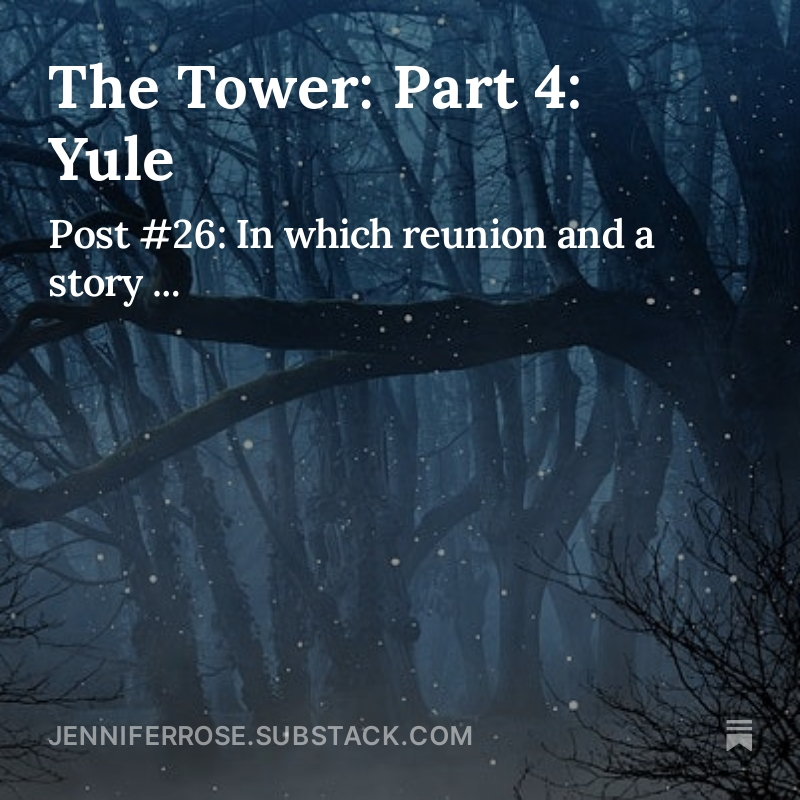
by Jenny Rose | Mar 2, 2024 | A Flourishing Woman, Mind
A couple of weeks ago a discussion I was involved in touched fleetingly upon the idea of an internal locked room, where we keep our most private thoughts and feelings. I’ve been thinking about the concept ever since, fascinated by the metaphor.

Photo by John Salvino on Unsplash
What’s in my locked room?
I don’t know. I don’t want to know, and I don’t want anyone else to know. That’s why I lock that stuff up!
But what’s in there?
I can’t let it go.
As a storyteller, I immediately recognize this common theme running through oral stories and folklore from all traditions. Something is locked or hidden. It’s forbidden to look. Lovers make a bargain. Authority demands obedience. The consequences of looking are not fully revealed, but it’s forbidden to look!
Someone always looks. Remember Pandora? Consequences ensue.
I’ve never really thought about an internal locked room until now; never considered how big it might be or what’s behind the door. I haven’t realized whatever my room contains is locked away from me as well as everyone else. All the memories I don’t want to remember. The hurts, the fears, the terrible thoughts, my unforgiveable deeds. The things about myself I can’t love.
Is it unhealthy to have a locked room? I assume everyone has one, but maybe not. I’m not uncomfortable about the presence of mine, but I question the wisdom of locking myself out. The road to self-love is long and arduous; can I practice it if I still don’t want to face (and accept or forgive) parts of who I am? That doesn’t feel like self-love.
Is a locked room adaptive or maladaptive? Could it be both? Does size matter? (You know what I mean. The size of the room!) Maybe the size is irrelevant and it’s the contents that count. 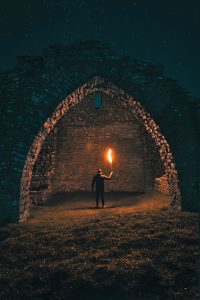
Why do we put things in our locked room? Why did I put things in mine?
Well. I’m ashamed. Or I’m afraid of emotional pain, conflict, or of hurting others. Maybe it’s something I’m not ready to forgive myself or others for. Maybe I lock it away to fester?
Ugh.
So is the locked room about keeping me safe or others safe?
Both, I think. Others safe from me and me safe from others. But it’s also a holding place where I keep things I don’t want to deal with.
I’ve read Radical Honesty by Brad Blanton. It gave me the horrors. I’m unable to see radical honesty as a pathway to healthy cooperation and collaboration. For me, privacy is a need, not only in an external sense of spending time in solitude, but also in the internal sense. This is unsurprising from a highly sensitive, empathic person who has experienced emotional trauma and abuse. I need my privacy and I’m intensely protective of the privacy of others.
I think a locked room is an essential piece of healthy functioning.
However, we as a species have a dreadful propensity for carrying things too far.
Not me, of course. I never do that.
How do we decide what’s appropriate to share and what’s not? Working with patients and patrons at the pool facility where I’m employed, I constantly feel battered with oversharing. People, especially seniors, are lonely. They have a lifetime of memories and experience. They have health issues that frighten them. They need to talk. My team and I do our best to be compassionate listeners.
But sometimes I wish I could forget what I’ve heard. Secrets are safe with me, but the feelings that come with them are burdensome; as an empath I’ve struggled all my life to avoid taking on the emotions of others. Mostly not very successfully.
Does everyone need some privacy? Is it a continuum? Do I need too much privacy? How much is too much? Who gets to decide? Is there such a thing as being too open, too un-private, if you will? Or does everyone have a locked room, even if it’s only the size of a mousehole?
Rooms. What happens in private rooms? Clutter. Dust bunnies. Cat hair. Hoarding. Loneliness. Despair. Death. Birth. Love. Sex. Creativity. Cooking. Self-care. Self-harm. Sleeping. Using the toilet. Distraction. Playing out addictions. Violence. Weeping. Exercising. Entertainment. The human activities of daily living we all engage in.
A locked room could be a dark and bitter dungeon or a light and airy penthouse. What kind of a locked room do I have? What kind do I want? 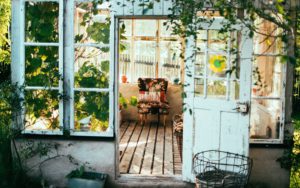
I hate clutter. Is my locked room cluttered? Surely not! Well, maybe. There’s 60 years’ worth of stuff in there! It’s spring. I kind of want to unlock it, open a window, air the place out. Maybe tidy up a little? Let go of some stuff? Sort? Organize? Would that be so terrible, so impossibly painful?
I have a sneaking suspicion some of what’s in my locked room is not even mine, but things given to me. Or imposed on me. I inherited toxic beliefs, experiences, and feelings from generations before me and believed it was my job to carry and preserve them.
Why am I storing what doesn’t belong to me?
Perhaps my locked room contains parts of myself I tried to get rid of and now need. Treasure, if you will. Maybe exploring it could be in part an act of reclamation.
Maybe if I open the door a tower of horror will fall on top of me and I’ll be smothered. Maybe if I don’t open the door green slime will ooze out from under it.
What’s in there?
I have some answers. My relationship with a cat named Ranger is in there, and no, I don’t want to talk about it. Every room needs a cat, in any case.
Health struggles (not serious) I’m largely unwilling to share are in there, although I have recently cracked the door and let some of them out. Carefully. Nothing bad happened.
My relationship with my children, one in particular, is in there. Now and then I’ve let a small amount of that out, too, but not often, not much, and only to my most trusted female friend.
My locked room is filled with passion. Passionate feelings of all kinds I’ve been hiding and repressing all my life. They’re strong and intense and I’ve been brutally taught they’re ugly, frightening, and obscene.
This has lately become a problem because rage is finding its way out of my locked room with disturbing results. Having escaped the room, it has no intention of being stuffed back in there and restrained. It’s a daily challenge at home, at work, and in the most unexpected contexts. It has stories to tell and I’m listening, reluctantly, but it frightens me and I’m ashamed of it. I thought I would always be able to keep it locked up and controlled. It appears I was wrong.
What else? I don’t know. These are the only specifics I can come up with. I’ll probably become conscious of more, now that I’m thinking about it.
I won’t fling the door of my locked room open and do a thorough cleanout because it’s the wellspring of my creativity, any small wisdom I’ve gained, and my empathy. As a gardener and a writer, I believe in compost. Something wild and primal in me, nurtured by Baba Yaga, loves the stink, the rot, the death, the blood, because these are the cradle of life. Nature does not waste. It’s all recycled. My experience of pain and passion empowers my writing, power I would not lessen in spite of its high price. Such power is born and rooted in fecund darkness, in muck mixed with blood and tears, in the edge of chaos, not in a bright, shining, passionless, well-aired room.
Yet I fear the passion the most. It feels like too much to release or keep contained. I fear its power to tear me apart, which is why I locked it away in the first place, and I fear its potential to hurt others. Much of it fuels my writing. I bleed some off with exercise, especially dance. But those are safety valves rather than open doors. Part of me wants to set my passion free. But for now most of it will stay in my locked room.
Questions:
- Do you have an internal locked room? How do you feel about it?
- Do you believe emotional privacy is essential, or do you think it’s unhealthy? Is it a need on a continuum?
- Are you familiar with the concept of radical honesty? What do you think about it?
Leave a comment below!
To read my fiction, serially published free every week, go here: 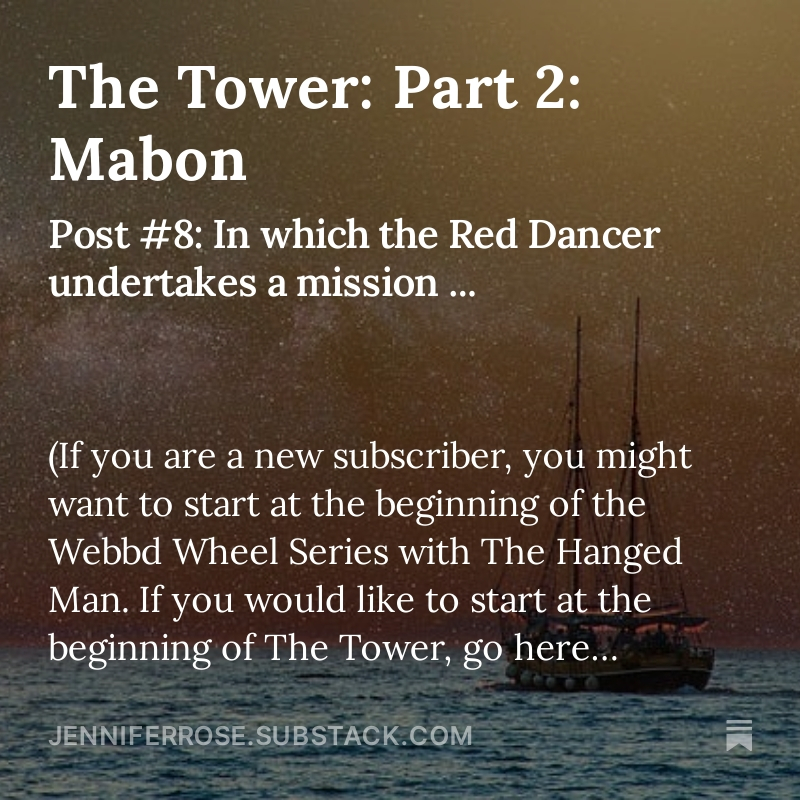
by Jenny Rose | Aug 5, 2023 | Power
Last week a Substacker I follow, Candace Rose Rardon, illustrated a memory I shared with her. I was absolutely thrilled. The union of my words and her art spoke to one of my core values: collaboration.
Collaboration is about power management. It’s defined as working with someone. Not directing them. Not submitting to them. Working with them. In other words, sharing power – power-with rather than power-over.
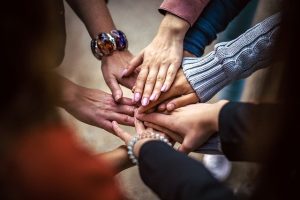
Image by Bob Dmyt from Pixabay
Is it just me, or are we as a culture moving away from sharing power rather than toward it?
Collaboration and cooperation lie at the heart of my fiction. All my life I’ve been preoccupied with working together, but I never had adequate language or studied power until I learned emotional intelligence. At that point the light dawned. I reviewed my relationships, both family and otherwise, through the lens of power.
It was a grim review. I set out to reclaim my power.
Let’s be clear: reclamation is not stealing.
I didn’t want to take power away from others. I wanted to reclaim what had been taken from me.
This involved needs, boundary work, and many other moving parts, most of which I’ve written about here over the last seven years (almost exactly seven years … wow), and all of which are woven into my books.
Speaking of my books, I have a dream that one day a visual artist will read my work, become inspired, and want to illustrate it. That’s not all. (Might as well dream big, right?) In the same dream a musician (drums and flute or pipe, at least) reads my work, becomes inspired, and adds music and a soundscape to it. I even dream one day we’ll develop the ability to incorporate scent into reading. 
I am a sensual person, and my writing reflects that. I myself see my characters and my world of Webbd vividly, but I’m not an artist. I respond deeply to music physically and emotionally, but I’m not a musician.
In every relationship I’ve sought collaboration. I’ve wanted a safe place to have an authentic voice, express an opinion, make a contribution. I’ve wanted the power to make choices. This has been true in the context of family, friends, spouses and boyfriends, coworkers, and community.
I have not been noticeably successful until the last ten years.
No matter how talented, strong, or knowledgeable we are, healthy collaboration can only make us bigger. Collaboration is tricky, though. It’s messy. We’re forced to deal with conflict, with different visions and voices than our own, different backgrounds, different belief systems, different ways of looking at the world and interacting with life. It’s work. It stretches us uncomfortably. We might have to be wrong (gasp!) and someone might find out we were wrong (horrors!).
Plenty of people say they want to collaborate when their true intention is a hostile takeover. Others seek collaboration as a way to make money or leverage other aspects of social power. Their agenda is to accrue power, not share it.
What Candace Rose Rardon did was extend a gift of generosity. When I sent her my memory I had no power over whether she chose to illustrate it or how she would illustrate it. I handed her my words and went on with life. I had no expectations. She sent back something beautiful woven of my words and her art. I’ve never met her. We exchanged no money. I know very little about her, but I do know this: she’s part of my tribe. She’s a creative collaborator.
Collaboration requires a willingness to be flexible and the willingness to accept someone’s vision regarding our art. As creators, we need to loosen our grip on our masterpieces and allow others to widen us. Perhaps someone else visualizes our character slightly differently than we do. Perhaps they see the character more clearly, or more fully than we can. As collaborators, we may be pushed to do more than we’ve done before, take new risks, try new things. Healthy collaboration makes us all more powerful, more expansive, more interesting, more textured.
We are stronger and more beautiful together than we are apart.

Photo by Helena Lopes on Unsplash
Collaboration is everywhere. It’s the falling rain and early birdsong on a spring morning. It’s the calling of shorebirds against the background of surf. It’s the buzzing of a fat bumblebee in a fragrant blossom. The world is unbelievably sensual. Walking through tall grass this time of year, the stems and heads turning straw-colored, the small scratching prick of grasshopper legs on my bare skin, the scent of warm grass in my nostrils, is a miracle of collaboration. A garden exists because of collaboration between countless forms of life and the weather.
We can’t collaborate in every situation all the time. Leaders lead. Parents parent. Bosses must manage their people, teachers their students. We all have areas in our lives we like to manage solo, including areas in our creative lives. On the other hand, we are seeing the consequences of no collaboration: chaos, fear, hatred, division, destruction, and social breakdown. We are now successfully being manipulated into choosing not to collaborate even with ourselves, but with consumerism, capitalism, and ideology instead.
Collaboration is wide. It’s not only about human-to-human interaction. If we don’t figure out how to collaborate with our planet, with the human and non-human life around us, and (perhaps most importantly) with ourselves, we will not thrive. We’ll solve no problems. Nothing will change. We’ll meet challenges as individuals and as communities and countries poorly. We will keep ourselves small, disorganized, and weak.
Or we can choose to combine our knowledge, our skills, our vision, and our humanity.
Questions:
- How have you collaborated successfully with others?
- How have you struggled with collaboration?
- What’s the hardest thing for you about sharing power with another?
- Are you open to collaboration? Why or why not?
Leave a comment below!
To read my fiction, serially published free every week, go here: 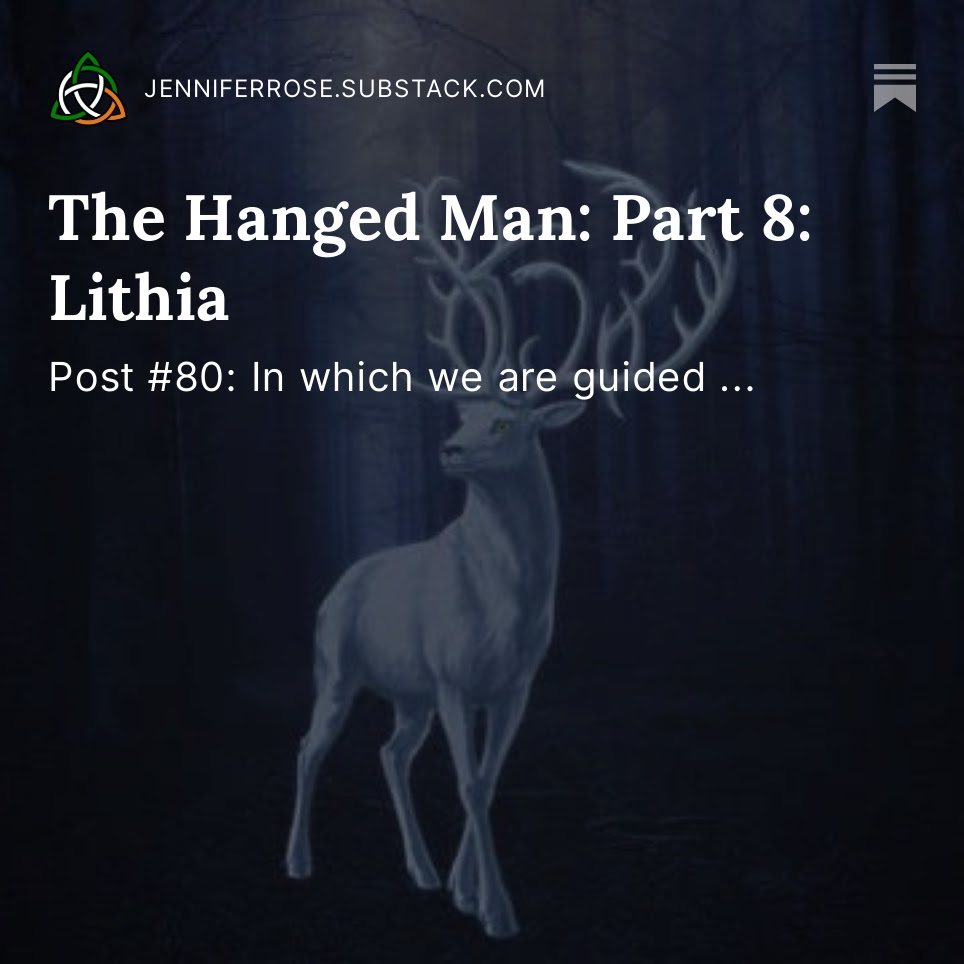
by Jenny Rose | Feb 11, 2023 | Connection & Community, Parenting

Photo by Tom Barrett on Unsplash
February. A couple of days with -40 degrees wind chill here in Maine that felt apocalyptic. A dead car battery. At work, a broken pump in one of the pools, private swim lessons, ill team members, and an upcoming lifeguard recertification training this weekend, which I’m sure I’ll pass. Probably. A $250 “unscheduled delivery charge” on a $500 + propane bill, as though the brutal cold was somehow our fault. A possible estate tag sale on the contents of my mother’s untenanted house in Colorado, as she now lives in memory care.
The sound of the cardinal at the birdfeeder. The cats basking on my desk in the morning sun. Blueberry lavender tea. The scent of a lavender candle. Imbolc, when the wild maiden returns. The Ice Moon, or, if you prefer, the Storm Moon. Daylight arrives earlier and lingers later.
Through it all, I think about The Mother. The Mother the wild Imbolc maiden might become. The Mother who nurtures, creates, carries the possibility of new life and beginnings within us. I think of biological mothers who labor and deliver a new baby into the world. I think of foster mothers, substitute mothers, women who grieve for their empty wombs. New mothers. Struggling mothers. Mothers whose children have grown and gone, or just … gone.
Sisters and aunts and grandmothers. The long line of mothers who stand behind our own mothers.
Myself as Mother.
I wrote down a quote recently. Unfortunately, I didn’t write down the source of the quote! I always think I’ll remember and then I don’t. Never mind. If it’s yours, let me know and I’ll give you full credit!
“A mother without fear of her own potential.”
There are so many ways to unpack this. A creator, an archetypal mother without fear of her own potential. Is there any artist or maker alive who doesn’t struggle with his or her fear of failure and success?
A young woman, simmering with hormones, discovering the power and potential of her sexuality in the context of rape culture and patriarchy; risking unplanned pregnancy, sexually transmitted diseases, violence, heartbreak, health, and even life.
A woman who longs to be Mother but cannot conceive, or carry, or deliver a living child. The yearning. The agony. The grieving and despair at being unable to fulfill such an overwhelming biological imperative. A woman who feels herself a vessel of death rather than a vessel of life.

Photo by Laercio Cavalcanti on Unsplash
A mother, the sweat of labor still on her face, swept with a ferocious love for the infant she’s just birthed, a love terrifying, passionate, transforming the landscape of her life irrevocably and forever.
A mother, lined, weary, anguished over her child’s unhappiness, ill health, addiction, behavior, wounds, choices, death. The passion of her pain equals the passion of her love. The passion of her rage and fear equal the passion of her love. How can this child we carried and cherished and loved so deeply, this child we would have defended with our teeth, our fingernails, our life, make self-destructive choices? How can they refuse to love themselves? How could we have failed to protect their health and happiness?
The ability to love like a firestorm, like a hurricane, like an earthquake, most would agree, is exciting and wild, a beautiful force of nature, perhaps the most powerful feeling in the world. But never forget passion cuts both ways. If we release and allow the potential of our love, we have opened ourselves equally to grief, loss, rage, unendurable pain.
I am a mother. I fear that potential.
Not that I had a choice. The feel of my newborn sons in my arms overcame me as powerfully as labor did. I was helpless before it. Their wellbeing and existence twined inextricably with mine in an instant. I made no conscious choice and had no conscious control enabling me to stand back from my potential as Mother.
I was Mother. They made me into Mother. I can never go back.

Photo by Liane Metzler on Unsplash
Yes, I know, boundaries are important. Individuation is important, as are freedom, letting go, and a hundred other facets of emotional intelligence I’ve written about on this blog. But I’m not talking about the long road of motherhood here, where we learn and stumble, fall down to rest, weep, get up, learn and stumble again. I’m talking about the timeless primal bond, deeper than language, deeper than reason. The wild love that works through us. Divinity, perhaps. Some would say The Devil. Whatever it is, it’s bigger than us. Bigger than me, anyway.
Do we imagine our own mothers feeling about us as we do about our children? Can we imagine it?
I can’t. If my mother felt for me what I feel for my sons, the tempest of her passion was never expressed in a way I understood it. Not in words, not in touch, not in action. Now, as she drifts in her dementia, I wonder, though, if she did feel as I did, but some great wound or constriction in her heart, now loosened because she does not remember it, did not allow her to express it. Perhaps her fear of her own potential as Mother was too great to allow her to demonstrate the depth of her love.
If so, I can understand. I can forgive.
Can I forgive myself as Mother? Can I forgive the things I didn’t say and should have, the things I did say and shouldn’t have, the unintended hurts and consequences as I made choices and lived my life? Can I forgive my inability to keep them safe every minute of their childhoods? Can I forgive my ignorance, my lack of understanding regarding their needs and challenges?
I used to tell a story about an orphaned boy who was “so lonely and so hungry nobody wanted to be with him.” That phrasing always made me fight tears when I spoke it. More than my many imperfections as Mother, can I forgive the way I tried to abandon the Mother part of myself? As my sons grew into manhood and began to live their own lives and I saw their challenges and pain, the Mother in me was too lonely and too hungry. Too filled with pain and rage, grief and shame. I turned away from her for a time, walked on without her, left her alone in the wilderness to live or die, as long as I didn’t have to experience her hunger, her loneliness, her feelings.
With my first child, I claimed the potential for Mother within myself. I flung myself into it, holding nothing back, having no thought of caution or reserve. And then, years later, I rejected it, abandoned joy and love because I could no longer face the pain. I severed myself from my own mother. I severed myself from my experience of Mother. I sundered myself and lived for a time with a cleaved heart.
But my love is a blind thing, a feeling without reason or logic. No matter the distance between my mother and myself, my sons and myself, my love did not diminish. Nor did the suffering that goes with it. The internal Mother I evicted grieved and wept. She lit candles and raged and feared and prayed for peace, for all to be well. She scratched at the windows of my life, whispered dreams beside my pillow, followed me like an abandoned spirit. She is mine and I am hers, though I tried to cast her away.
I know I will never be whole without her. The child within me, the crone I am growing into – both need the Mother. I need her as I care for animals and people, as I nurture new life in the garden, as I teach children to swim, as I write, as I cherish my friends and family. As I cherish myself.
Perhaps I simply needed a break from the pain. Perhaps I could not learn to love myself while being battered by the needs and demands of my mother and my sons. Now, my ability to care for and nurture myself gives me a place to pause, to rest. Perhaps, as I age, I am growing in wisdom, losing not the depth of my love, but the frantic edge that cuts so keenly. Love, after all, endures. Motherhood endures. I am the sum of my parts plus a little more. I cannot decide to be less. I might as well accept all of myself, reclaim all of myself, be all of myself. 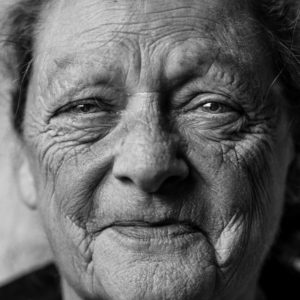
And so, I’ve returned, Mom. We were not a perfect mother and daughter, you and I. We each did our best, and now my best is better than that. Let there be peace between us now, at the end. I have never stopped loving you. And Mother of my sons, cease following me just out of sight. Come in. Let us soothe one another’s weary regrets and scars. We loved with everything we had. Those we gave life to were never ours to keep. They must walk their own paths. Let us find a way to release our love from our pain.
Let us reclaim one another.
Questions:
- What was your experience of being mothered?
- What has been your experience of being a mother in the wide sense, as a creator, a biological mother, or a substitute, surrogate, or foster mother?
- What potential in yourself do you fear?
- Who in your life has been so hungry and so lonely nobody wanted to be with them? Have you ever felt like that person?
Leave a comment below!
To read my fiction, serially published free every week, go here: 